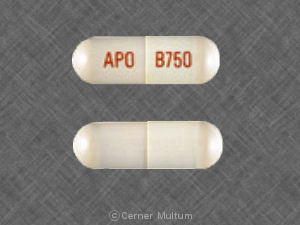What is Balsalazide?
 Balsalazide reduces the actions of chemicals in the body that cause inflammation in the colon (bowel).
Balsalazide reduces the actions of chemicals in the body that cause inflammation in the colon (bowel).
Balsalazide is used to treat active ulcerative colitis.
Balsalazide may also be used for other purposes not listed in this medication guide.
What is the most important information I should know about Balsalazide?
Do not use this medication if you are allergic to balsalazide or to salicylates (such as aspirin, Disalcid, Doan’s Pills, Dolobid, Salflex, Tricosal, and others).
Before taking balsalazide, tell your doctor if you have a stomach disorder called pyloric stenosis, kidney disease, or an infection that you are treating with antibiotics.
Tell your doctor if your symptoms get worse after you start taking balsalazide.
Balsalazide may interact with antibiotics. Tell your doctor if you need to take an antibiotic during treatment with balsalazide.
What should I discuss with my healthcare provider before taking Balsalazide?
Do not use this medication if you are allergic to balsalazide or to salicylates (such as aspirin, Disalcid, Doan’s Pills, Dolobid, Salflex, Tricosal, and others).
If you have any of these other conditions, you may need a dose adjustment or special tests to safely take balsalazide:
- a stomach disorder called pyloric stenosis
- kidney disease; or
- any infection that you are treating with antibiotics
FDA pregnancy category B. This medication is not expected to be harmful to an unborn baby. Tell your doctor if you are pregnant or plan to become pregnant during treatment.
It is not known whether balsalazide passes into breast milk or if it could harm a nursing baby. Do not use this medication without telling your doctor if you are breast-feeding a baby.
Balsalazide Side Effects
What are the possible side effects of Balsalazide?
Get emergency medical help if you have any of these signs of an allergic reaction: hives; difficulty breathing; swelling of your face, lips, tongue, or throat.
Stop using balsalazide and call your doctor at once if you have any of these serious side effects:
- worsening colitis symptoms, such as fever, stomach pain, cramps, or bloody diarrhea
- bleeding from your rectum; or
- pale skin, easy bruising, weakness
Less serious side effects may include:
- headache, sleep problems (insomnia)
- nausea, vomiting, stomach pain, diarrhea
- runny nose, cold symptoms; or
- joint pain
This is not a complete list of side effects and others may occur. Call your doctor for medical advice about side effects. You may report side effects to FDA at 1-800-FDA-1088.
Balsalazide Interactions
What other drugs affect Balsalazide?
Balsalazide may interact with antibiotics. Tell your doctor if you need to take an antibiotic during treatment with balsalazide.
There may be other drugs that can interact with balsalazide. Tell your doctor about all the prescription and over-the-counter medications you use. This includes vitamins, minerals, herbal products, and drugs prescribed by other doctors. Do not start using a new medication without telling your doctor.
What should I avoid while taking Balsalazide?
Follow your doctor’s instructions about any restrictions on food, beverages, or activity.
Balsalazide Dosage
How should I take Balsalazide?
Take this medication exactly as it was prescribed for you. Do not take the medication in larger amounts, or take it for longer than recommended by your doctor. Follow the directions on your prescription label.
Take this medicine with a full glass of water.
Balsalazide can be taken with or without food.
Balsalazide is for short-term use only. Do not take this medication for longer than 12 weeks unless your doctor has told you to.
Tell your doctor if your symptoms get worse after you start taking balsalazide.
Store balsalazide at room temperature away from moisture and heat.
What happens if I overdose on Balsalazide?
Seek emergency medical attention if you think you have used too much of this medicine. Symptoms of a balsalazide overdose are not known.
What happens if I miss a dose of Balsalazide?
Take the missed dose as soon as you remember. If it is almost time for your next dose, skip the missed dose and take the medicine at your next regularly scheduled time. Do not take extra medicine to make up the missed dose.
Edited from everydayhealth.com
